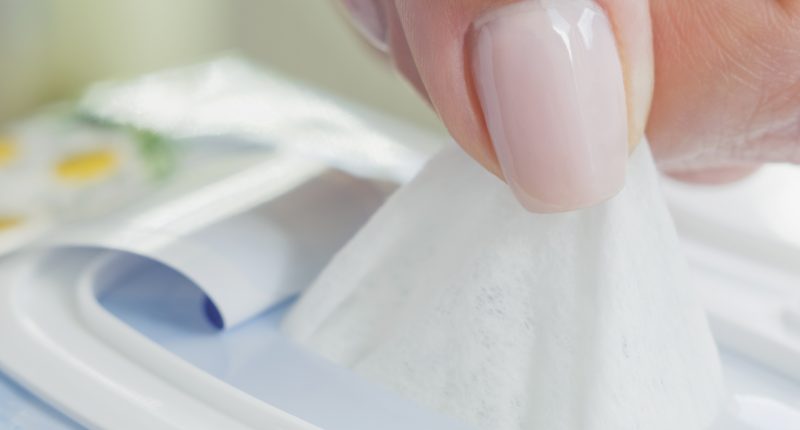A BABY essential will be banned to help protect the environment within months.
Wet wipes containing plastic are set to be removed from sale in the UK under legislation expected to be confirmed on Monday.
Currently, 11billion wet wipes are used every year in the UK. They are indispensable for parents with small children but are not eco-friendly.
Nine in ten contain plastic.
Boots, Tesco, and Aldi have already banned plastic-based wipes in a bid to prevent tiny particles from entering our water.
Big brands, like Pampers and Waterwipes have already introduced plastic-free biodegradable alternatives too.
Read more in money
Environment Secretary Steve Barclay is expected to announce plans to introduce legislation before the summer recess in July following a long-running campaign to ban the products.
The law would make it illegal to sell or supply wet wipes containing plastic in England, with the rest of the UK set to follow by the autumn.
Wet wipes eventually break down into microplastics, which damage ecosystems and contribute to water pollution.
Discarded wipes have increasingly littered Britain’s beaches.
Most read in Money
Mr Barclay said: “I have been clear that a step change is needed to protect our waterways from pollution.
“The ban builds on a raft of actions already taken to protect our waterways and hold water companies accountable, including accelerating investment, putting water company fines back into the environment and quadrupling the number of inspections of water company sites.”
But Labour said the ban did not go far enough, committing to a “a full ban on the sale, supply and manufacture of plastic wet wipes”.
Shadow environment secretary Steve Reed said: “Plastic wet wipes clog up our sewers, kill wildlife and lead to sewage backing up into people’s homes.
“The Conservatives have broken their promises to act and are too weak to ban them outright.”
The party also pointed out that the Conservatives had first promised to ban wet wipes in 2018 as part of a crackdown on plastic waste.
Monday’s proposals follow a consultation that saw overwhelming support for the move.
A previous consultation in 2021 also found more than 90% of people were in favour of a ban.
Some businesses such as Boots, Aldi and Tesco have already moved to ban wet wipes containing plastics from their stores.
Steve Ager, chief customer and commercial officer at Boots, said: “We are pleased to see the government now taking action as a ban on all wet wipes containing plastic will have a much bigger impact than retailers taking action alone.
“We all have a collective responsibility to protect the environment and support a healthy planet.”
Campaigners welcomed Monday’s proposals but urged the Government to go further than bans on single items.
Jane Martin, chief executive of City To Sea, said: “It’s a positive step forward to see the Government take definitive action on banning this pollutant, but action must not end there.
“The Government should now look to tackle all single-use plastic products through further bans and mandated reuse and refill targets.”
Parliament‘s summer recess begins on July 23, with the legislation expected to be introduced before then.
However, with an election expected in the autumn, there will be limited time to pass the law before the country goes to the polls.
It comes after, single-use plastic plates, cutlery and food containers were axed on October 1, 2023.
The ban applies to takeaways but not those used in shelf-ready pre-packaged food like supermarket meal deals.
Single-use balloon sticks, polystyrene cups, bowls and trays were also be outlawed.
Plastic straws, cotton buds and coffee stirrers were banned in England in October 2020 to help tackle single-use plastic pollution.
The ban was first announced in 2018 and was due to come into effect in April 2020 but was pushed back due to the coronavirus pandemic.
It came after research showed that an estimated 4.7billion plastic straws, 316million plastic stirrers and 1.8billion plastic-stemmed cotton buds are used in England every year.
Many retailers swapped the plastic products with paper alternatives before the ban, like McDonald’s which ditched plastic straws back in 2018.
Before this, efforts had been focused on getting rid of single-use plastic bags supplied by retailers.
In 2015, the government slapped a 5p charge per single-use plastic bag handed out at supermarkets.
The charge rose to 10p in April 2021 and extended to all retailers, including corner shops and newsagents.
READ MORE SUN STORIES
Beauty, cleaning and health products containing microbeads have also been banned in the UK since 2018.









